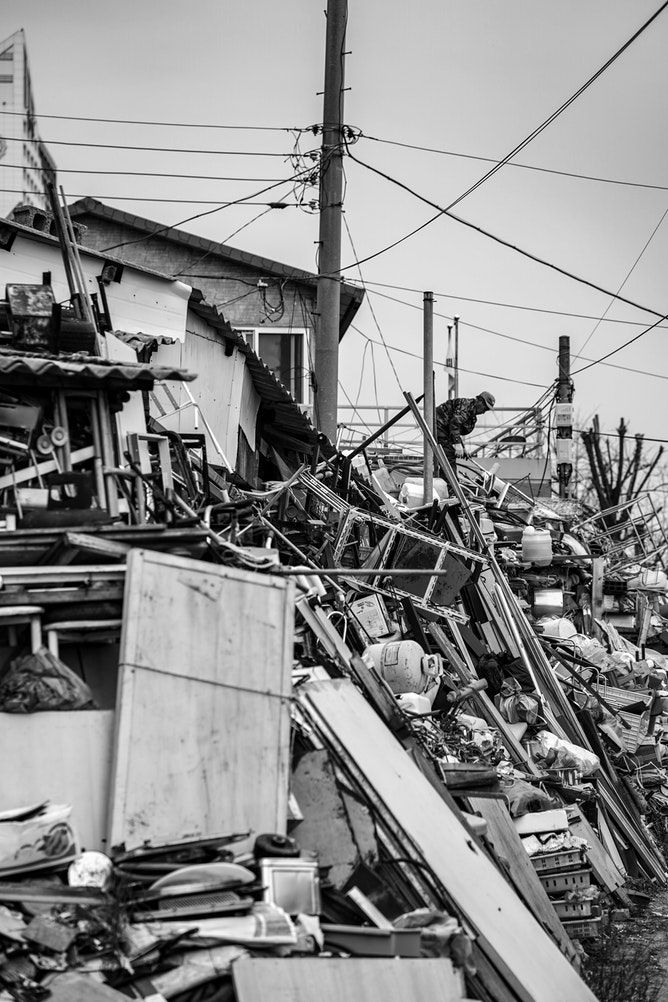From Architect to Journalist
- Andrea Juarez
- Mar 29, 2022
- 4 min read
Ximena González’s journey in becoming a journalist and staying true to herself
When Ximena González spent most of her early 20s dedicated to architecture, she never imagined she’d become a journalist.
Born and raised in Nayarit, a state on the west coast of Mexico, González, 38, moved to Calgary in 2010 to pursue a master’s degree in environmental design.
However, after graduating, she struggled to find jobs in her industry due to her lack of Canadian work experience.
“I realized I had a blank slate, so I decided that I could do whatever I wanted,” she says.
Having studied a public relations diploma in the past, González decided to move on from a career in architecture and urban planning to start her own communications company.
One of her company’s clients was Jeremy Klaszus, founder and editor-in-chief of the independent online journalism outlet The Sprawl. Working for The Sprawl, González managed Facebook advertisements and memberships, and soon became the publication’s assistant editor.
One day, Klaszus encouraged González to write stories instead of just marketing material.
His persuasion worked, and González wrote her first story for The Sprawl, in which she focused on the challenges that highly educated immigrants face to get jobs within their fields of study — a topic close to her heart.
“Everything clicked,” she says. “That was my outlet, and that was the thing that I was supposed to be doing.”
Fuelled by her passion and desire to speak up against unjust systems, González became an urban affairs reporter for The Sprawl and wrote stories in which she used her architecture and urban planning backgrounds to explore the relationship between people and places with a focus on social justice.

Ximena González | Photo by Rob Moses.
This year, González wrote a story for B.C. online news magazine, The Tyee, in which she breaks down the effects that Canadian snowbirds have in the gentrification of beach towns in Mexico.
“When I moved to Calgary, I started reading about the downsides of tourism, which I never heard about,” she says. “I came to the realization that urban planners do what’s going to be good for the tourism industry, but not for the people who live there.”
In her article, González mentioned that contrary to popular belief, the wealth from the tourism industry doesn’t trickle down to the locals.
“Tourism isn’t so good, and we (Mexicans) are doing everything for tourists who happen to be Canadians who don’t realize all the things people are giving up,” she says. “People should wonder that if they can’t afford something here, but they can in Mexico… something must be wrong.”
Besides her stories on the tourism impact, González work has also focused on the inequality in Calgary neighbourhoods, and Calgary’s housing cooperatives.
“I like to shed a light on things that I see and no one talks about,” she says.
For Klaszus, it’s been delightful to hear how much readers appreciate González’s work.
“I remember she was nervous before her first story was published in The Sprawl — worried about the blowback. As it turned out, people loved her work and wanted more of it,” he says.
“González is thoughtful and a provocateur in the best sense. She questions established narratives, she likes to stir things up a bit and get conversations going. She has a talent for writing copy that catches people’s attention and makes them see things differently.”
In Journalism, González found a voice for herself and for individuals who don’t feel heard.
“It’s been rewarding for me,” she says. “In part because I felt like I’d been silenced in the past, and because it feels like we are doing something important.”
However, she feels that the industry needs to be more diverse and inclusive.
“Journalism is a field for privileged people, and it shouldn’t be because it’s vital for society,” she says. “You have to have the social and cultural capital to become a journalist, and if I hadn’t had that privilege in Mexico, I probably wouldn’t be doing this job.”
As for her plans for the future, González wants to remain focused on her career as a journalist.
“I like what I’m doing right now, and I will keep doing it.”
Her advice for women who are pursuing a career in journalism? Do it.
“You have to try, you have to apply, and you have to submit things because if you don’t try, you won’t win,” she says.
González also advises future journalists to be positive and encourages them to find a way to do the things they enjoy, even if imposter syndrome kicks in.
“Do what you want to do despite having those fears,” she says. “Give yourself some room to actually feel the fear. It’s terrible, but then do it anyway.”
After a long journey to find her true calling, González is proud of having stayed true to herself instead of choosing the path she originally had carved for herself 15 years ago.
“When your identity is connected to what you do, it’s difficult to realize that you picked the wrong career,” she says. “However, If I had stuck to architecture, I would probably be unhappy right now.
“Sometimes we’re supposed to just stick to something. But sometimes, there are things that aren’t worth sticking to.”


